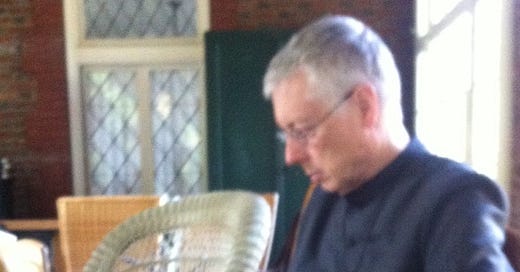“There is overwhelming empirical support for the value of being at a house of worship on a regular basis on all kinds of metrics — mental health, physical health, having more friends, being less lonely,” said Ryan Burge, a former pastor and a leading researcher on religious trends. Pew’s findings corroborate that idea: Actively religious people tend to report they are happier than people who don’t practice religion. Religious Americans are healthier, too. They are significantly less likely to be depressed or to die by suicide, alcoholism, cancer, cardiovascular illness or other causes. In a long-term study, doctors at Harvard found that women who attended religious services once a week were 33 percent less likely to die prematurely than women who never attended. That’s because, said Tyler J. VanderWeele, an author on the Harvard study, “they had higher levels of social support, better health behaviors and greater optimism about the future.” - Americans Haven’t Found a Satisfying Alternative to Religion, NYT
Because it is true
In her introduction to a podcast “Why It’s Logical to Believe in God” Bari Weiss said, “the brilliant Ross Douthat, has a different perspective. Ross makes the case that we should be more religious, not in order to cure society’s ills, but because it is true. Because it’s the best or most accurate way to understand the world around us. Belief in God, he says, doesn’t require a leap of faith. In fact, he says, it is entirely rational.”
For I know that my Redeemer lives,
and that at the last he will stand upon the earth;
and after my skin has been thus destroyed,
then in my flesh I shall see God,
whom I shall see on my side,
and my eyes shall behold, and not another. (Job 19:25-27)
Douthat makes an interesting case. I can’t say that I found all that he said convincing. However, I loved hearing someone make a case grounded in reason. Remember that Anglican three-legged-stool — scripture, tradition, reason? Here was a case rooted in reason. You can see, listen or read the interview — HERE.
Practice and belief
Douthat and Weiss discuss practice and belief
Weiss said, “if you do the practice enough, I think belief can often follow that. … For many people who were raised in the secular liberal waters, belief in God feels like the highest level to get to. And the much lower rung on the ladder is, “This is a great way to order your life. This is a great way to order your family’s life.”
Douthat responded, “But if you had both Thomas Aquinas and Maimonides here with us, the greatest Jew and the greatest Christian, they would both say, “Sure, the fullness of Judaism and Catholicism is only accessible through all these practices and rituals and revelation and grace, but the idea that the universe was probably made by some kind of creator, that’s basic. That should just not be that hard to get to.” Part of my perspective is that you can’t have a full religious revival until more people set aside their instilled prejudice that a belief in God is this impossibly high thing you can only get to after spending 27 years contemplating on a pillar. And instead, return to the wisdom of the ancients that says, ‘Belief in God, that’s the easy part.’ “
For we do not have a high priest who is unable to sympathize with our weaknesses, but we have one who in every respect has been tested as we are, yet without sin. 1Let us therefore approach the throne of grace with boldness, so that we may receive mercy and find grace to help in time of need. (Hebrews 4:15-16)
Others weigh in
“I believe, in order to understand; and I understand, the better to believe” Saint Augustine
Na’aseh ve-nishma. “We will do and then we will understand”
For I do not seek to understand so that I may believe, but I believe so that I may understand, - Anselm of Canterbury
Adam Dalgliesh: My father was a parish priest. When I lost my faith he said, “If you find you can no longer believe just act as if you still do. If you feel you can no longer pray just go on saying the words.” — P. D. James, in A Taste for Death
This abides,
Brother Robert, OA
Related postings
In the shadow of your wings: "in the shadow of your wings will I take refuge until this time of trouble has gone by".(Ps 57)
A return to religion in the West?: An excitement, a love
Four monastic practices: To teach congregations about how to be in, but not of the world.
The Threefold Rule of Prayer: "the work of a people who have been doing this a long time" (Amy B. Hunter)
This Creed of ours: a love song
The Free Press has been offering a good bit of material on what it sees as a religious revival
Here at The Free Press, we’re fascinated by America’s religious revival. If you are too, don’t miss Peter Savodnik’s essay on how intellectuals are finding God, and Madeleine Kearns’s report on Hallow, the Silicon Valley–born app that’s bringing lapsed Catholics back to the faith. You also might like to catch up with our live debate on whether the West needs religion.
And if you enjoyed this essay (The Patron Saint of lost Americans), read Paul’s piece about his own religious conversion, “The Cross and the Machine,” and explore his Substack, “The Abbey of Misrule”—then listen to his conversation with Bari on Honestly:





